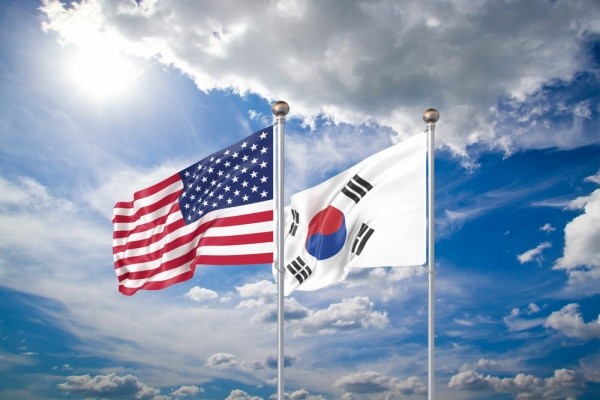It has been confirmed that the U.S. Government is preparing to openly criticize South Korea’s Enforcement Decree of the Telecommunications Business Act that requires value added common carriers to provide stable services and the Domestic Representative Designation System that is particularly for multinational corporations.
A controversy can arise as the U.S. Government will look to intervene with amendments made to systems that require minimum obligations to protect users in South Korea.
The U.S. Department of State had gathered opinions related to topics that will be brought up during “Korea-US ICT Policy Forum” that will be held on September 9 (Korea time) from the U.S. Chamber of Commerce and Korea Information & Communication Technology Industry Association (KICTA).
The forum is held in order to strengthen industrial cooperation between two countries and it has representatives from both governments and private companies participating. This year’s forum is causing some tension between the two countries as the South Korean Government revised its legislation.
After the Electronic Times confirmed with the South Korean Government and American companies, it is heard that the U.S. Government is preparing to argue that the Enforcement Decree of the Telecommunications Business Act is an excessive regulation that particularly targets American companies.
The enforcement decree requires value added common carriers that operate in South Korea and make certain amount of revenue to take necessary measures to extend capacities of their servers and to secure stable access routes in order to provide services without any issue. The U.S. Government heard from American companies that such requirement adds uncertainties and bring financial and technological burdens on them.
Regarding amendments to the Information and Communications Network Act, there are concerns with the U.S. Government and American companies at the center that requiring multinational corporations to have domestic representatives in South Korea for protection of personal information can potentially violate the free trade agreement (FTA) between South Korea and the U.S. U.S. – Korea FTA prohibits one from forcing the other to set up a fixed business place in its country and the Domestic Representative Designation System can be viewed as violating the promise.

It is expected that the U.S. Government will mention about how it is difficult for American companies to enter the south Korean public procurement market. American companies conveyed their criticisms towards “New Deal” and “G-Cloud” project led by the Ministry of the Interior and Safety being centered on South Korean companies to the U.S. Government.
There is a great chance that the U.S. Government will bring up these opinions from American companies during the forum. “There are many concerns towards amendments to South Korean laws and enforcement decrees from American companies.” said a spokesperson for an American company. “We believe that these regulations are one-sided and are particularly unfavorable for us.”
It will be difficult to avoid a controversy once the U.S. Government officially delivers its position on amendments to South Korean systems. Korea-US ICT Policy forum is a place to form consensus on topics that will promote the two countries’ industries and it is not a place to discuss decisions on one’s policies. Actually, this year’s forum’s main topics include 5G, artificial intelligence, and cyber security.
Some are concerned that if the U.S. Government brings up issues related to South Korean laws that are legislated to protect users in South Korea, it can damage the primary purpose of Korea-US ICT Policy Forum.
In case of amendments to the Enforcement Degree of the Telecommunications Business Act, the act clearly states that it applies for both domestic and foreign businesses. The Domestic Representative Designation System is also a universal regulation established by major countries such as the European Union in order to protect their people. South Korea’s “New Deal” is also part of the country’s policy to vitalize its economy which is seen throughout many countries in order to deal with COVID-19.
The Embassy of the U.S. in Seoul met with key representatives from the Ministry of Science and ICT (MSIT) and are deciding on which agendas to discuss about during the forum. It will be interesting to see whether the two countries will come together to strengthen the cooperation between them.
“It is true that we met with representative from the U.S. Government prior to the forum.” said a spokesperson for the MSIT on September 6. “However, it is difficult to disclose detailed information related to possible topics of the forum.”
It is heard that Jung Hee-kwon from the MSIT and Stephen Anderson who is the acting deputy assistant secretary for International Communications and Information Policy in the Bureau of Economic and Business Affairs will represent their respective countries at the forum.
Staff Reporter Park, Jisung | jisung@etnews.com & Staff Reporter Oh, Dain | ohdain@etnews.com